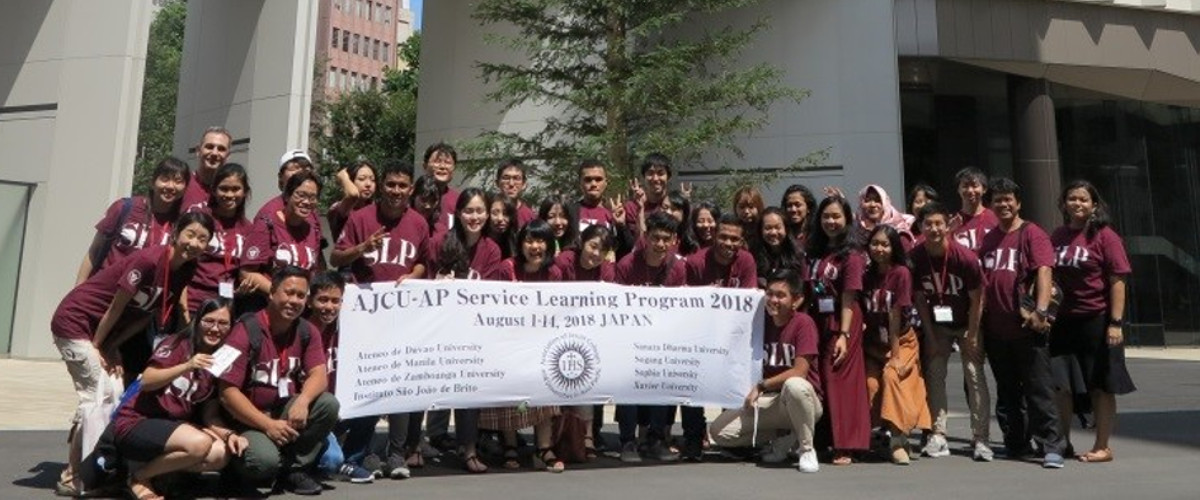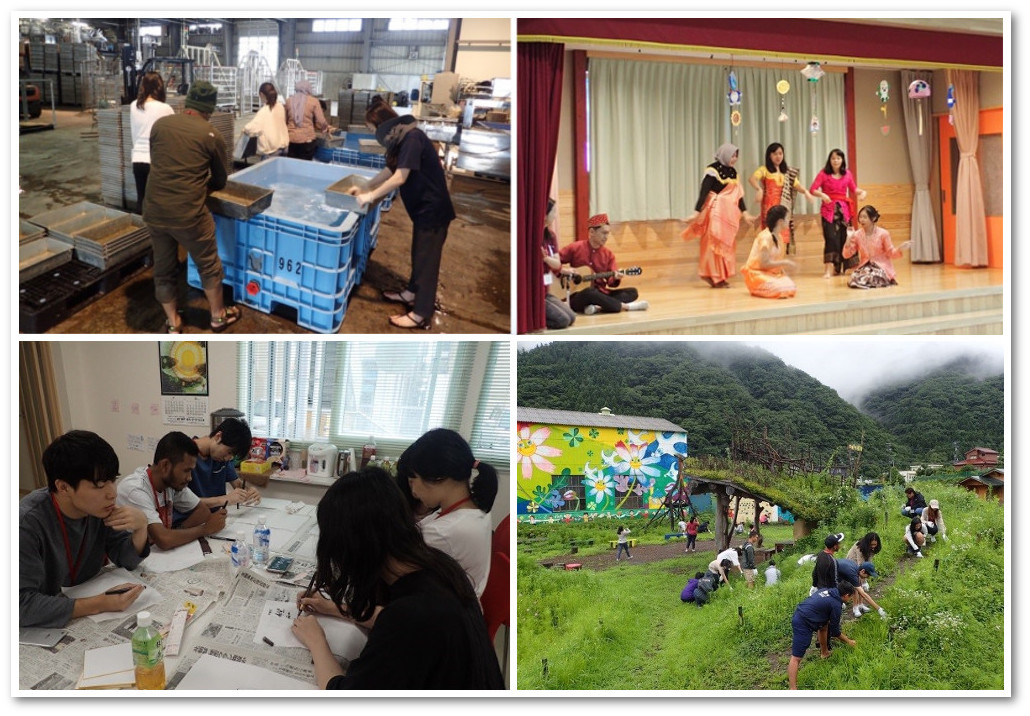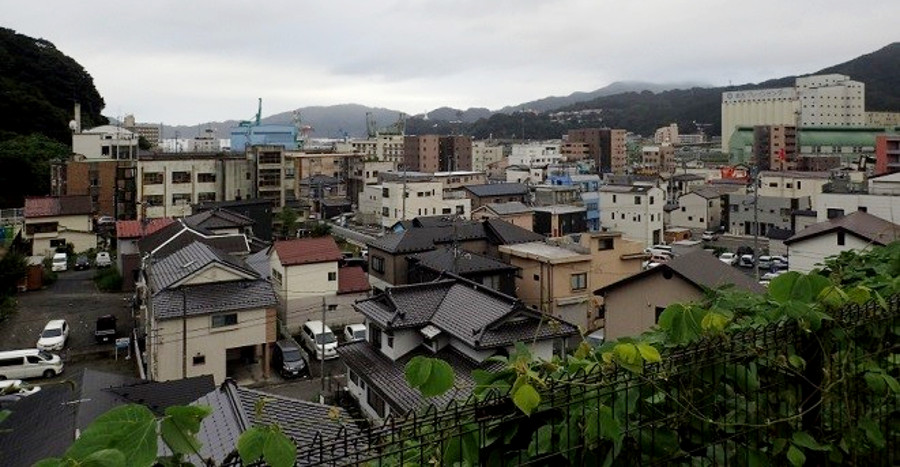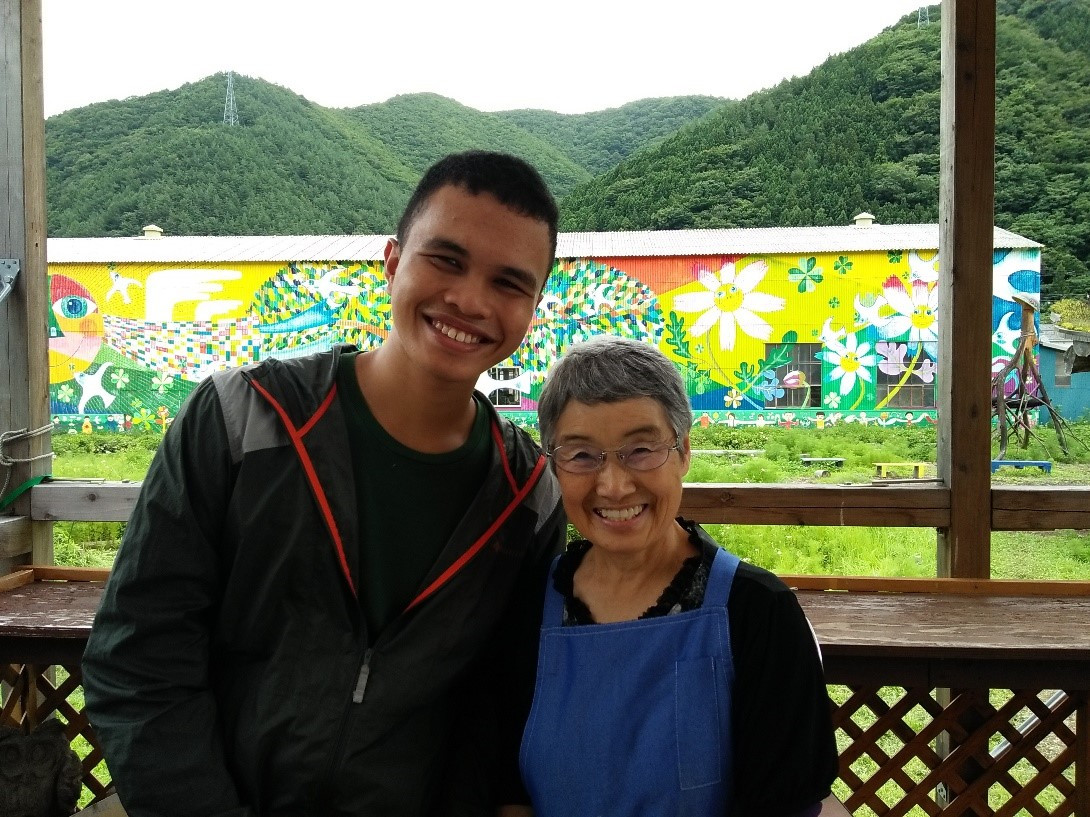
During the first few days of their arrival, the participants attended lectures on Ignatian education and spirituality, and post-disaster recovery at Sophia University in Tokyo to prepare them for their service learning trip. Then they were sent out for their immersion to Iwate Prefecture.
In the city of Kamaishi, the students helped farmers weed at a local non-profit organisation farm, cleaned factory buildings, helped organise a festival for a nursery school and staged cultural dance performances for the elderly at a nursing home. Students and staff also joined the “Kamaishi Yoisa Festival”, a traditional dance festival held every summer.

Clockwise from top left: Students cleaning at the Ito Shoten factory; Indonesian, Korean and Filipino students performing a cultural dance at the Unosumai Nursery; learning the Japanese art of origami and calligraphy; weeding at Cosmos Farm
Since the students were there foremost to learn about disaster recovery, they visited areas that were worst hit by the 9.0 magnitude earthquake: the towns of Ofunato, Rikuzentakada, which was severely struck by the tsunami, and Unosumai and Otsuchi next to Kamaishi. With them was a professional tour guide who survived the disaster. In Ofunato, the students interacted with Japanese and Filipino Catholics who were brought together fortuitously by the tsunami. In the aftermath of the disaster, the town’s small Japanese Catholic community went around providing aid to survivors when they encountered hundreds of Filipino Catholics also living there. Since then, the Japanese and Filipino Catholics have revitalised the Catholic community, filling the Ofunato Church during Mass.

Present-day Kamaishi. The city has recovered from the destruction wrought by the earthquake and tsunami.
Some students experienced life-transforming changes in their values and perspectives from listening to the painful stories of the survivors. Many of them realised the importance of faith and gratitude for their life and surroundings. The students also discussed the case in their own countries, reflecting on ways to address natural disasters from their newly gained knowledge. The impact of their experience was evident in the sincerity and seriousness of the group reflections each evening and at the end of the programme.
“As an engineering student, my engagement with the local people opened my eyes to see beyond the colours of hazard maps and the sciences of infrastructure design and construction,” shared Garnelo Jose Cupay from Xavier University in the Philippines. “The call to magis for me is a call to listen and see the stories of the people who have been affected, and provide them with what they truly need.”

Garnelo with Saeko Fujii, owner of Cosmos Farm. Fujii turned a part of the farm into a park where children who had lost their playgrounds to the earthquake could play.
The activity was part of the Association of Jesuit Colleges and Universities – Asia Pacific’s annual Service Learning Program held this year from August 1 to 14 and hosted by Sophia University. Twenty-eight students and nine faculty members joined from eight universities, including six students from Sanata Dharma University in Indonesia, seven from the four Ateneo Universities in the Philippines (Manila, Davao, Zamboanga and Cagayan de Oro), four from Sogang University in South Korea, two from Instituto São João de Brito in Timor-Leste and nine from Sophia University. [With reporting from Sophia University]






